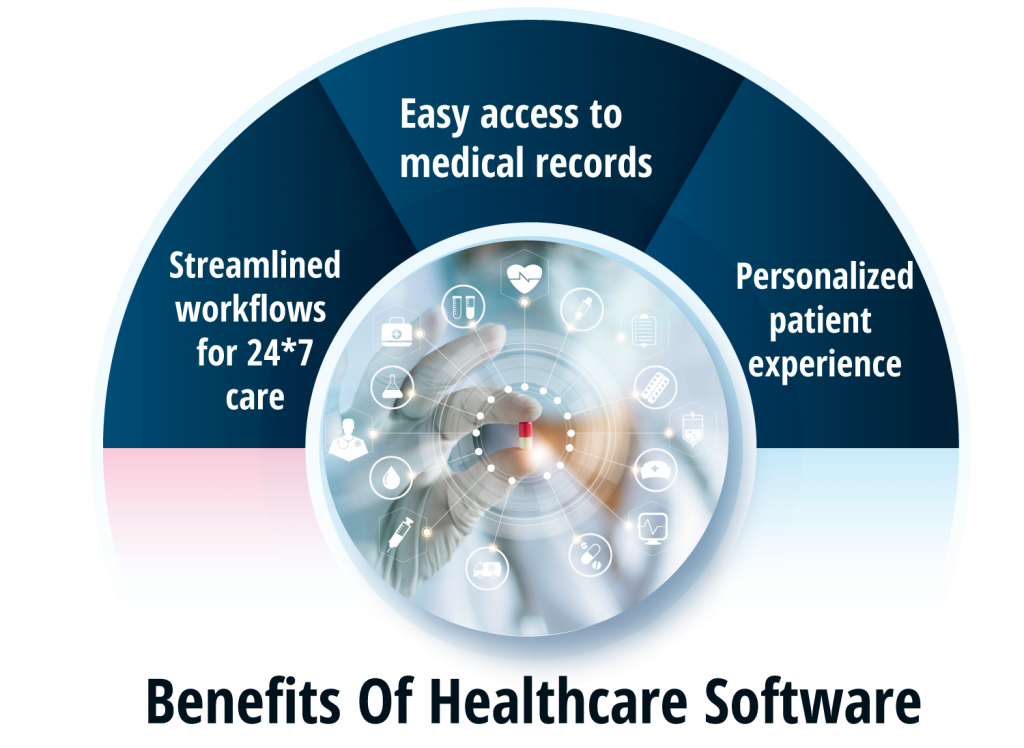It’s difficult to dismiss or ignore the pervasiveness of the covid-19 pandemic. We now live in a new normal, one in which everything we do must be done with extreme caution. Bio-bubbles, social distance, and limits on meetings and movements are now commonplace.
The covid-19 variant has gone through several modifications since its outbreak, the most recent of which is the omicron variant. Mutations will occur, and the delta and omicron variant families will continue to evolve, according to a new Hopkins study.
But is our healthcare system ready for the challenges ahead, and what influence has the covid-19 pandemic had on our already overburdened and vulnerable healthcare systems?
These are the questions we will try to answer in this blog.
The Covid Emergency and its Collateral Impact
The impact of the covid-19 pandemic has been felt across all walks of life. The pandemic has wreaked havoc on humanity, from crashing economies to mass layoffs. It is reshaping and reconfiguring the world, and the same is true for our healthcare system.
To achieve maximum growth and sustainability when COVID-19 becomes endemic in most of the world, each sector, industry, and function will have to reinvent itself.
Impact of Covid on the Health Sector
As of April 5, 2022, 6,180,128 persons have died as a result of the coronavirus COVID-19 epidemic. However, the covid-19 epidemic has posed a threat to more than just human lives. It has had a much greater effect on the healthcare system. The healthcare industry is at the heart of this unprecedented worldwide crisis.
COVID-19 has increased healthcare costs, disrupted healthcare supply chains, and significantly reduced non-covid footfall and test volumes.
Because of the pandemic’s rapid emergence. The industry was beset by uncertainty, exacerbating the ongoing economic crisis. As a result of the virus pandemic, footfall and test volumes plummeted by 70-80%. Over the last two years, fear of getting the virus from healthcare personnel or other patients has resulted in a significant drop in in-person visits.
The needs of ‘non-Covid’ patients took a back seat to the pandemic response. Even routine check-ups become burdensome and costly for people with infectious diseases and chronic illnesses.
There is, however, a silver lining. Experts believe that the outbreak may have just redirected healthcare in the right direction.
Healthcare Software: For Newer Trajectories and Opportunities
If there was one thing we learned from the covid-19 outbreak, it was that our healthcare system is extremely vulnerable. Many aspects of the healthcare infrastructure were found to be lacking.
While it would be incorrect to suggest that such a pandemic could have been predicted, there is universal agreement that our healthcare infrastructure should have been better equipped and more flexible.
In most countries, hospital-based care has long been the norm, and health data are still manually documented and preserved.
The system was unnecessarily burdened because most healthcare institutions perform tasks manually. Most healthcare systems, including those of affluent countries in Europe and North America, were on the verge of collapsing.
Furthermore, the covid-19 pandemic reinforced the fact that decent healthcare is a luxury for the majority of people. In most nations, access to treatment and information is still a pipe dream for the poor and vulnerable.
The impact of covid-19 is irreversible and necessitates a complete rethinking of patient access as well as how to sustain high-quality medical delivery.
There must be now a united effort to digitalize healthcare. Investment in healthcare software should be the first important step towards making our healthcare system more accessible, more affordable, and more sustainable.
What is Healthcare Software?
From practice management software to software for creating 3D medical imaging, healthcare software covers a wide range of use cases. Here’s a rundown of some of the most popular custom healthcare software tools:
- Electronic health record (EHR): For digital storage of patients’ personal information, medical history, and medications.
- Telemedicine Solutions: For carrying out consultations online, emergency care, e-prescriptions, and more
- Remote Patient Monitoring Software: For collecting patient data in real-time(outside of hospitals or other institutions)
- Hospital Management Software: For automating daily administrative tasks such as accounting and inventory management.
- Healthcare Billing Software: For automating medical billing procedures
Benefits of Healthcare Software
There are many advantages of healthcare software. It helps to reduce cost, time, and errors. Here are some examples:

1. Easy Access to Medical Records
When it comes to providing high-quality treatment, the value of a detailed medical history cannot be overstated. Paper-based recordkeeping is inconvenient, time-consuming, and prone to errors.
With electronic health records software, authorized providers and caregivers can easily access patient records and get what they need when they need it. And, best of all, medical data may be kept, retrieved, and shared across all devices (mobiles, laptop, and computer networks)
2. Streamlined Workflows for 24*7 Care
A healthcare management software automates all components of the facility while also streamlining workflows for maximum efficiency. Providers can focus on what they know best, giving them more time to engage on things that matter most i.e focus only on patient care.
3. Personalized Patient Experience
In the end, it’s all about the patient.
Giving patients the best experience possible is a critical component of improving their health. Medical management software gives providers and clinics everything they need to provide a personalized experience to patients, from the moment they walk in the door to the moment they leave.
What is Electronic Health Record(EHR) Software?
An electronic health record (EHR) is a digital version of the patient’s medical history. EHRs are paperless and real-time. Unlike paper-based records, EHRs make information available to authorized users and respective patients promptly and securely.
Features and Benefits of EHR Software
One of the most essential features of an EHR is the ability for providers to create and manage health information in a digital format. Other healthcare professionals and organizations, such as laboratories, specialists, and medical imaging centers, can access these HIPAA-compliant electronic records.
EHRs are not only helpful to doctors, but they are also a patient’s best friend. A patient can access their health records anytime anywhere. This improves the doctor-patient relationship and increases patient confidence in the healthcare system.
EHR Benefits:
- Realtime: Provides accurate, up-to-date, and complete information about patients in realtime
- Agile: Enables quick access to patient records for more coordinated, efficient care.
- Interoperability: Secure sharing of electronic information with patients and other clinicians.
Covid-19 pandemic and EHR
Covid-19 requires providers to respond quickly and in a coordinated manner. EHR provides doctors with immediate access to patient information, which is critical and life-saving.
Electronic health records that are complete and interoperable allow for data sharing and access across the public health system, allowing for better monitoring and reporting of suspected and confirmed diseases.
Furthermore, electronic health records (EHRs) make telemedicine more practical for monitoring COVID-19 positive patients at home and providing continuity of care for COVID-19 negative patients who can be treated remotely.
Bottom line: The Future of Healthcare Software
The importance of health in reducing severe poverty and enhancing well-being cannot be overstated.
- Over 12% of the world’s population spends at least 10% of their household budgets on health care.
- Over 100 million people are forced into extreme poverty as a result of their health expenses.
- More than 400 million people in the world, out of a total population of more than 7.2 billion, do not have access to basic health services.
The covid-19 pandemic is surely an inflection point for the healthcare industry. Software innovations are essential to ensure everyone, no matter their circumstances, has access to high-quality and highly affordable care.
The future of healthcare software is about taking care right to people’s doorsteps most efficiently and affordably. Kayawell total healthcare solution is the first step in that direction. Here’s where you may learn more about Kayawell healthcare listing services and software solutions.

Leave a Reply
You must be logged in to post a comment.